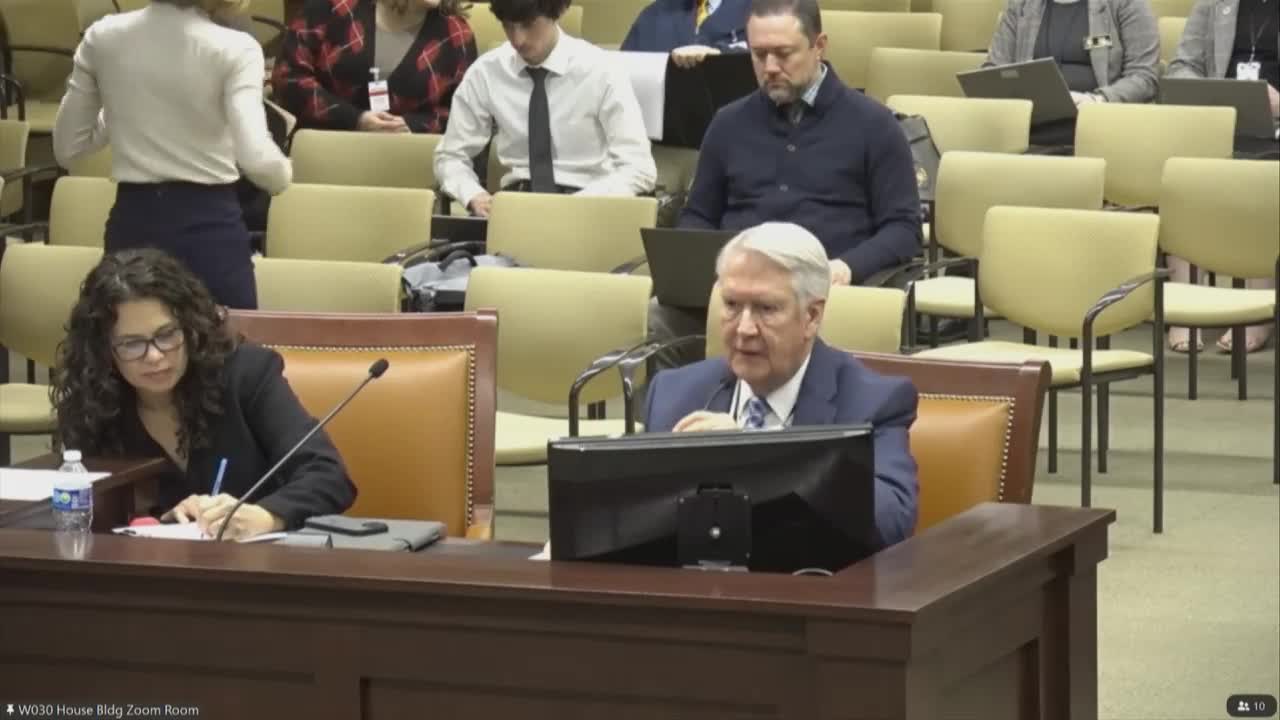Utah Tax Commission warns funding sweeps could hinder cybersecurity and legal defenses
Get AI-powered insights, summaries, and transcripts
Subscribe
Summary
Commissioners from the Utah State Tax Commission told the General Government Appropriations Subcommittee on Feb. 7 that proposed budget reductions would impair the agency’s cybersecurity readiness and its ability to hire expert witnesses in tax litigation.
Commissioners from the Utah State Tax Commission told the General Government Appropriations Subcommittee on Feb. 7 that proposed budget reductions would impair the agency’s cybersecurity readiness and its ability to hire expert witnesses in tax litigation.
Commissioner John Valentine, chairman of the Utah State Tax Commission, opened by warning, “Houston, we have a problem,” and asked committee members to look at the commission’s packet. Valentine said a proposed $1,500,000 reduction to the Tax Commission general fund would remove carryforward funds the commission relies on to protect its systems and to satisfy existing contractual obligations. “We have spent $253,000 of that money already. We have contractually obligated another $530,000 of that money to protect the system,” Valentine said, adding that the funds pay an outside vendor, Fast Enterprises, and that taking the funds mid‑budget cycle would create immediate gaps in the commission’s ability to respond to incidents and to pay contracted work.
Nut graf: Tax Commission leaders urged the committee to avoid making an ongoing reduction to a locally funded account used to collect and distribute sales tax because doing so, they said, would effectively transfer local fees to state programs and could require future increases in fees for local governments. They also described a separate ongoing reduction proposal of $3,500,000 to the state tax administrative charge and noted that one‑time sweeps totaling about $16.2 million were under consideration.
Valentine explained an account that holds fees charged to local governments for sales tax collection and distribution is local money and that any ongoing reduction would likely require statutory change; he said that account fluctuates with sales tax receipts and that taking ongoing money now could force higher local fees if revenues decline. Deanna Herring, the commission’s executive director, said the $1,500,000 carryforward partly funds emergency cybersecurity responses because the commission’s systems receive heavy traffic and must be able to respond “immediately with our third party vendor and with DTS right there.” She added that the commission monitors web traffic and that vendor and Department of Technology Services (DTS) work co‑located with the commission to protect the state tax systems.
Committee members asked clarifying questions about the commission’s return on investment and its role defending local tax assessments in appeals; Representative Thurston and other committee members noted the commission collects large sums and that its functions affect counties, particularly in centrally assessed property litigation where expert witnesses are needed. The commission said it collects roughly $16 billion a year in revenue on behalf of the state. Jason Gardner, deputy executive director, answered a separate question about license plate processing and said the design review committee, not the tax commission, is holding up public release of a proposed Great Salt Lake license plate pending further design review.
Direction and outcome: The commission asked the committee not to adopt the $1.5 million general fund reduction and to avoid the proposed ongoing $3.5 million reduction to the state tax administrative charge; the subcommittee thanked the commission and said it would consider the information during prioritization. The committee did not take a vote on these budget items at the Feb. 7 meeting.
Ending: The committee adjourned after a final motion; the prioritization decisions on both the debate commission RFA and the Tax Commission reductions remain pending in the appropriations process.
